
Intro
When considering a new running shoe, there are so many similar-looking shoes on the market being made by so many different companies, it is virtually impossible to (1) know where to begin; (2) quickly figure out which one or two products from a given brand might work well for you; and (3) determine what products from other brands might be the most similar and also worth considering.
So in our new “Blister Brand Guide” series, we provide an overview of the entire product lineup of a brand; highlight how each product stands out from the rest of that brand’s lineup; and help you figure out quickly and easily which shoe might work best for you.
In our individual product reviews, we go very deep into the details of particular products. With these Brand Guides, the goal is not Depth, but Breadth. Our Brand Guides and full reviews are designed to complement each other — provide a broad overview of entire company lineups, and then also very detailed reviews of individual products.
Brand Background: Scott
Scott has been at the forefront of innovation in the world of outdoor sports equipment since 1958, when founder Ed Scott invented an aluminum ski pole that, unbeknownst to him at the time, would eventually give rise to a multinational company with product lines in industries as disparate as motorsports and freeskiing. Though incorporated in the US, Scott expanded to Europe in 1978 and has called Fribourg, Switzerland their home ever since. The years following that transition saw the company direct much of their attention toward competitive cycling, a large part of the zeitgeist in Europe during the 1980s and 90s. In 1989, they debuted one of the first aerodynamic handlebars, a product that would help Greg Lemond win that year’s Tour de France. Now with over 60 years of innovation behind them, Scott has more than solidified themselves as a legacy brand in the outdoor industry, approaching every piece of gear they make with the same rigor, creativity, and design principles that have brought them success across many different sports for decades.
Scott has been making high-performance running shoes since 2006, when they contracted a research and development lab in Portland, Oregon — a hotbed for footwear design — to help them create a full lineup of models for both men and women. Within the last several years, their options for trail running have dwarfed the limited number of road running models they make, though Scott still takes both categories seriously (evidenced by the recently released Speed Carbon RC, their first carbon “super shoe”).
On the whole, Scott trail shoes tend to be pretty neutral, with stack heights kept modestly between 18 mm and 29 mm, and heel-to-toe drops between 3 mm and 8 mm — you’ll find no maximalist interlopers here. Most models also employ a rocker geometry. Aside from the handful of race-specific shoes built on narrow lasts, Scott shoes should be fairly accommodating for most foot shapes. A few of their higher-end trail models feature unique upper components from Schoeller, a Swiss textile manufacturer known for their performance fabrics. Build-quality is something Scott pays plenty of attention to, across their entire lineup, and we’ve found their shoes to be generally quite durable across surface types. While Scott’s trail running lineup is diverse in the sense of the varied demands each of their shoes is best suited to meet, none stray too far from one another stylistically, so hopping back and forth between different models within Scott’s lineup should be trouble-free.
In this breakdown we’ll go over each Scott model, describing its features and intended purpose as we go. As always, shoes are organized in descending order from most cushioned to least cushioned.
ROAD SHOES
Most Cushion
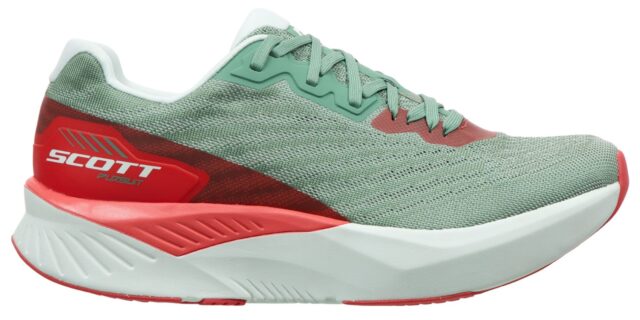
Stack Height
- Heel: 30 mm
- Toe: 22 mm
Drop: 8 mm
Stated Weight
- Men's: 250 g
- Women's: 225 g
MSRP: $150.00
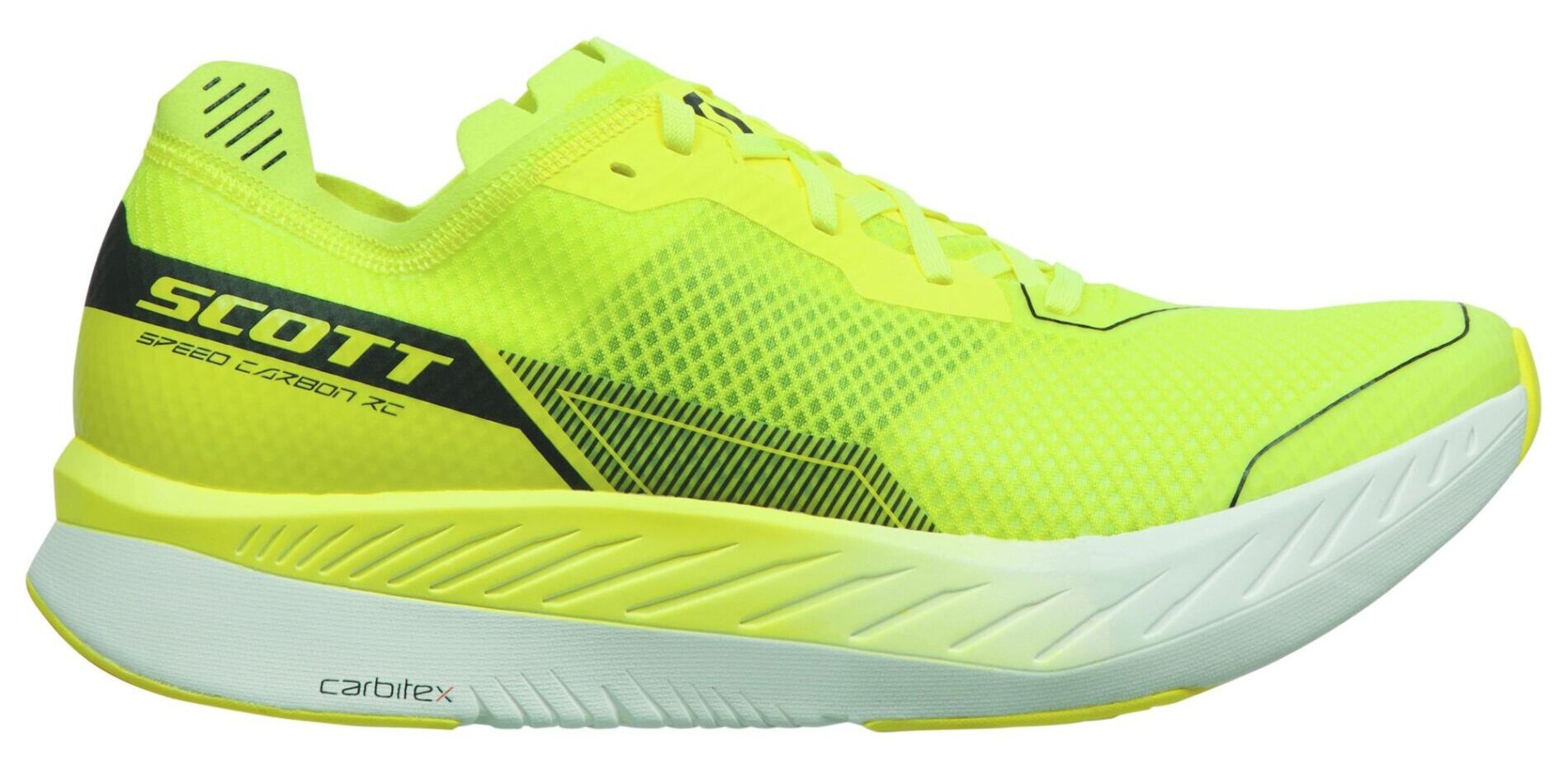
Stack Height
- Heel: 30 mm
- Toe: 25 mm
Drop: 5 mm
Stated Weight
- Men's: 240 g
- Women's: 215 g
MSRP: $190.00
Least Cushion
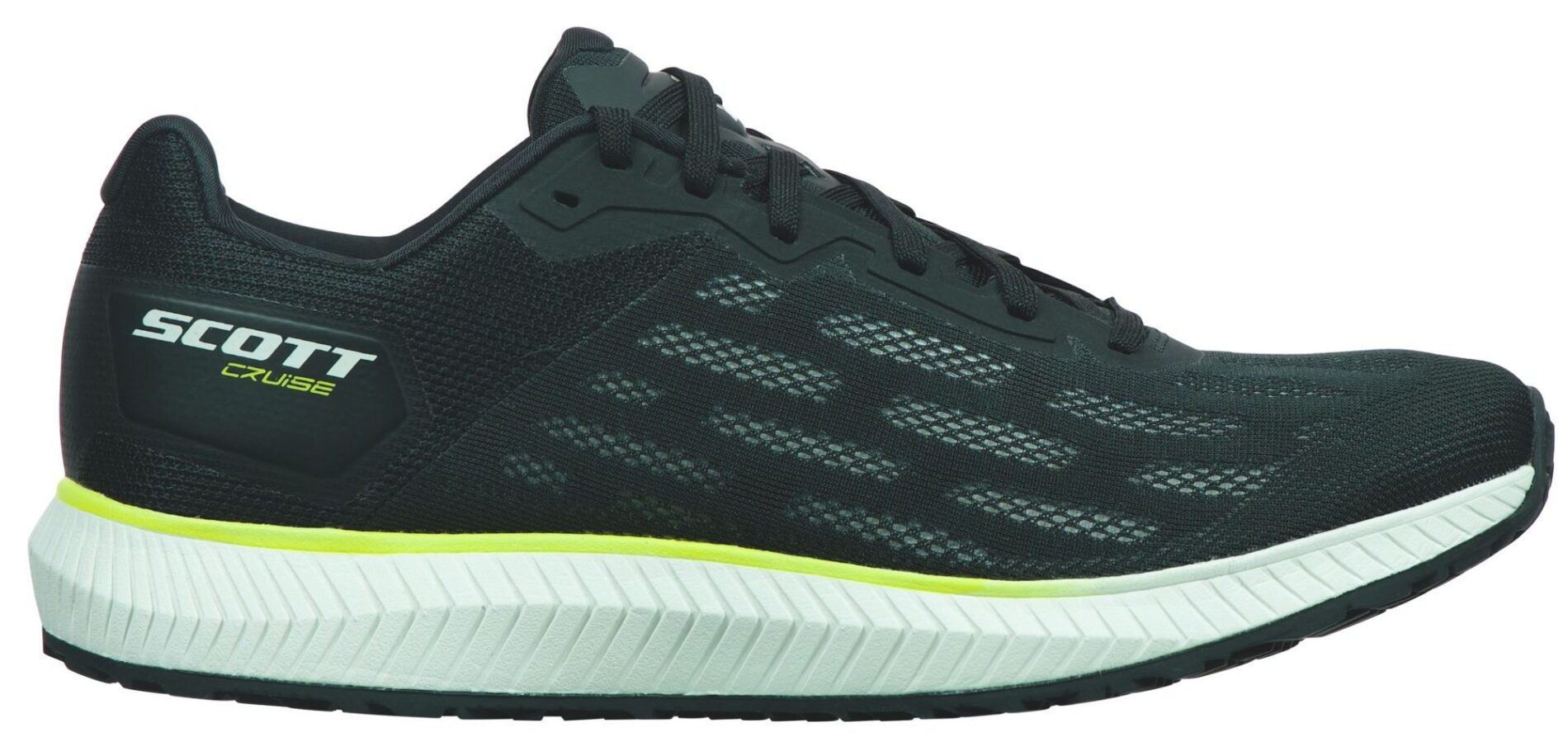
Stack Height
- Heel: 26 mm
- Toe: 15 mm
Drop: 11 mm
Stated Weight
- Men's: 280 g
- Women's: 255 g
MSRP: $140.00
TRAIL SHOES
Most Cushion
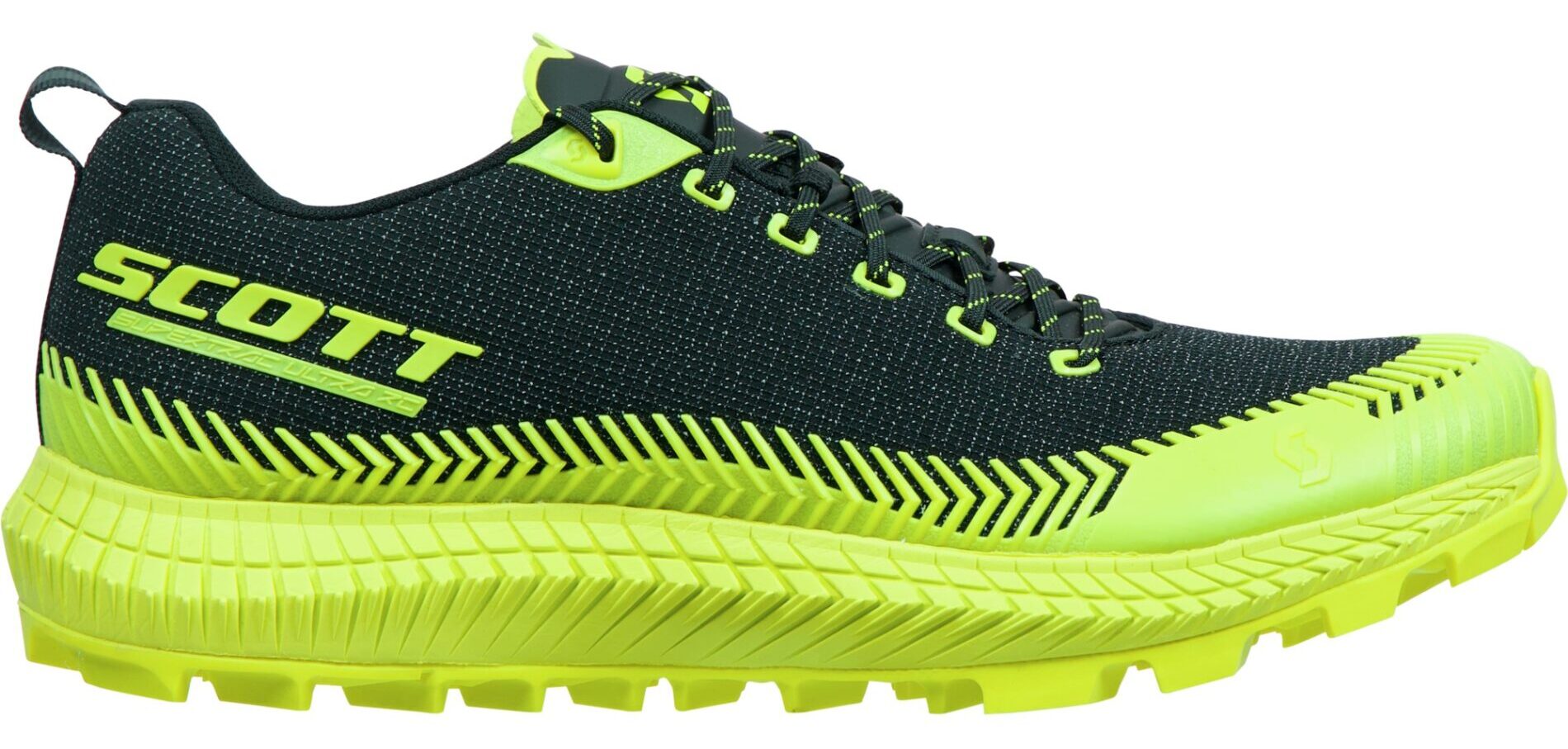
Stack Height
- Heel: 29 mm
- Toe: 20 mm
Drop: 8 mm
Stated Weight
- Men's: 340 g
- Women's: 300 g
MSRP: $160.00
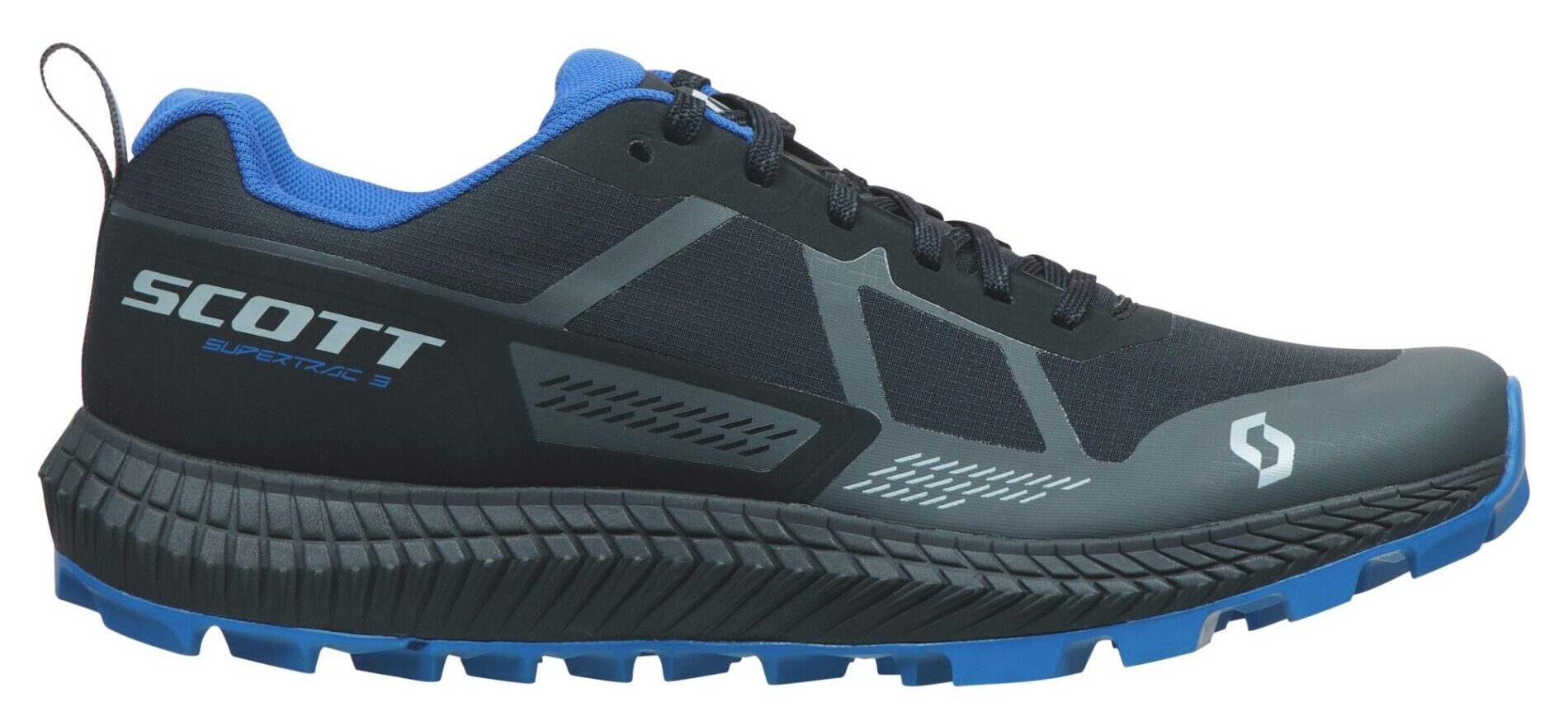
Stack Height
- Heel: 29 mm
- Toe: 20 mm
Drop: 8 mm
Stated Weight
- Men's: 320 g
- Women's: 290 g
MSRP: $140.00
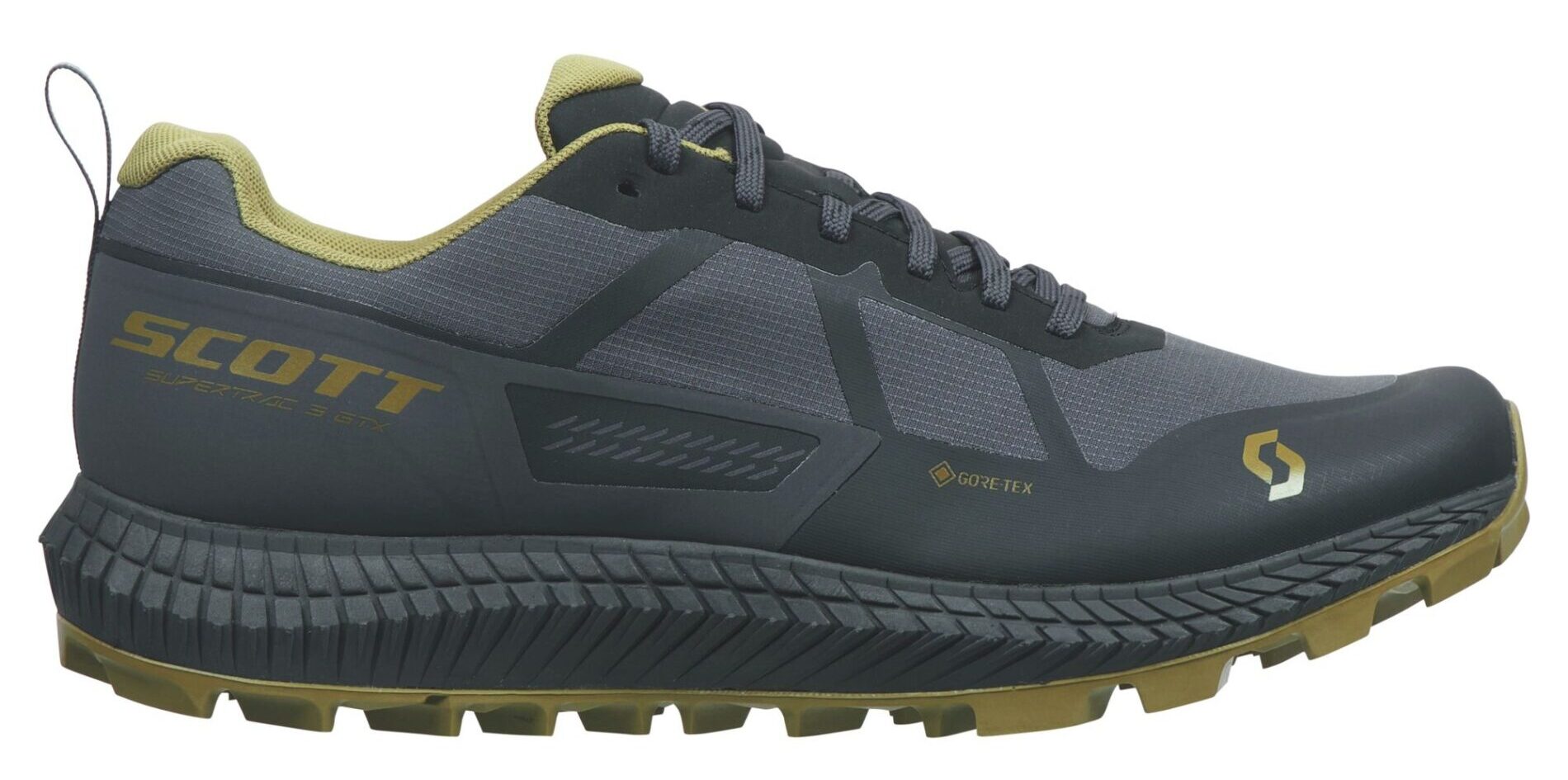
Stack Height
- Heel: 29 mm
- Toe: 20 mm
Drop: 8 mm
Stated Weight
- Men's: 330 g
- Women's: 300 g
MSRP: $170.00
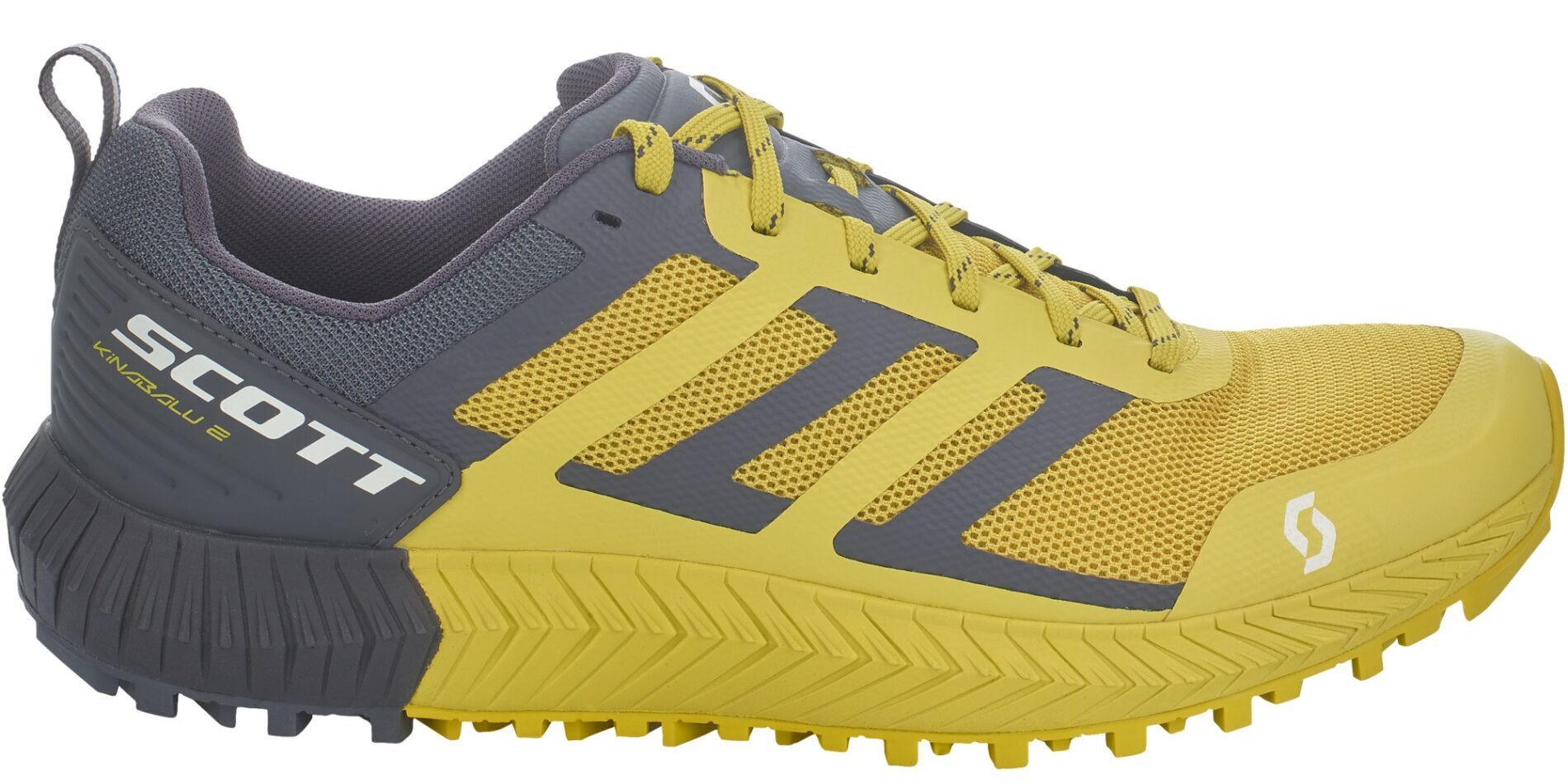
Stack Height
- Heel: 29 mm
- Toe: 20 mm
Drop: 8 mm
Stated Weight
- Men's: 290 g
- Women's: 260 g
MSRP: $140.00
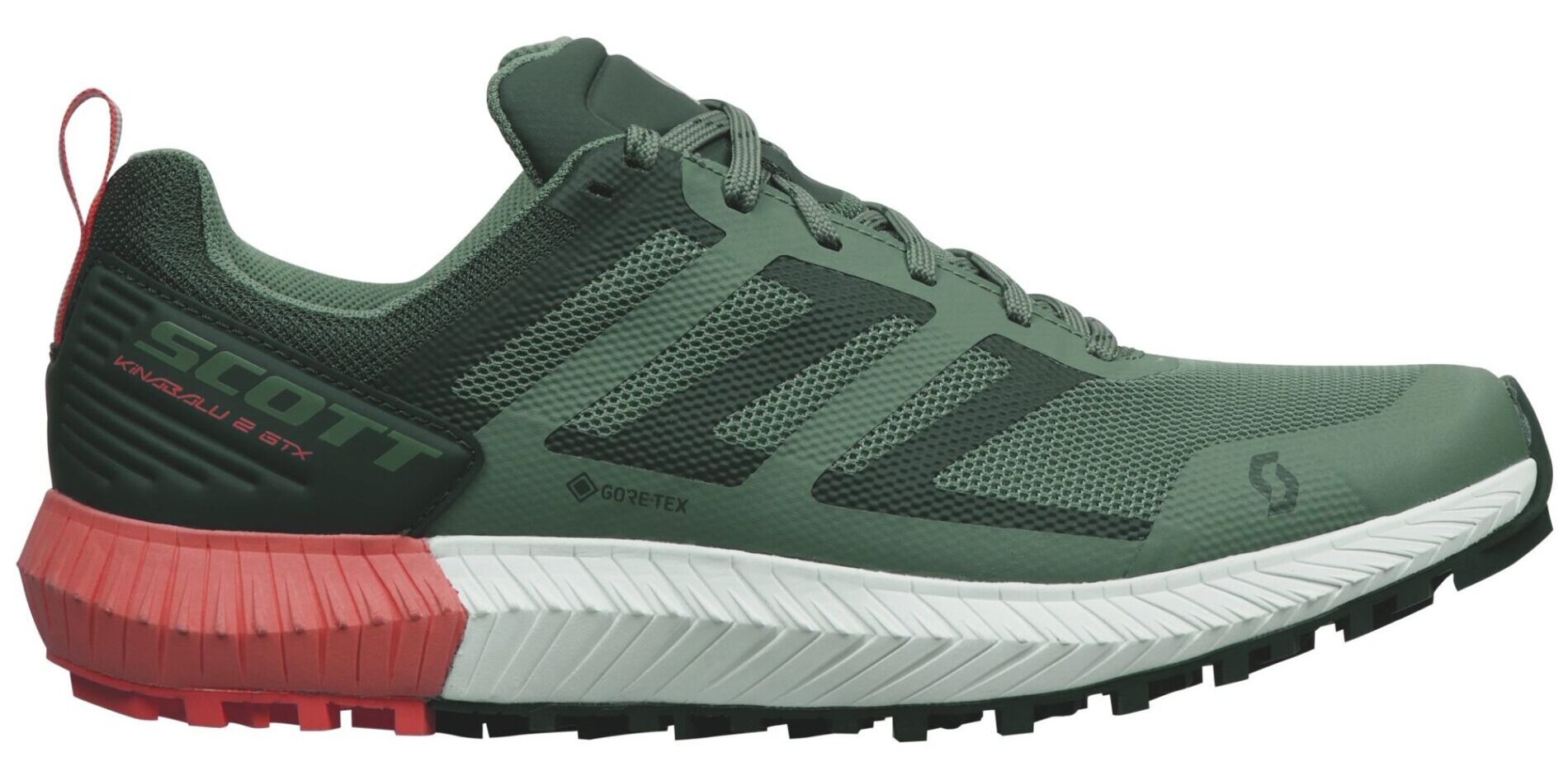
Stack Height
- Heel: 29 mm
- Toe: 20 mm
Drop: 8 mm
Stated Weight
- Men's: 300 g
- Women's: 270 g
MSRP: $170.00
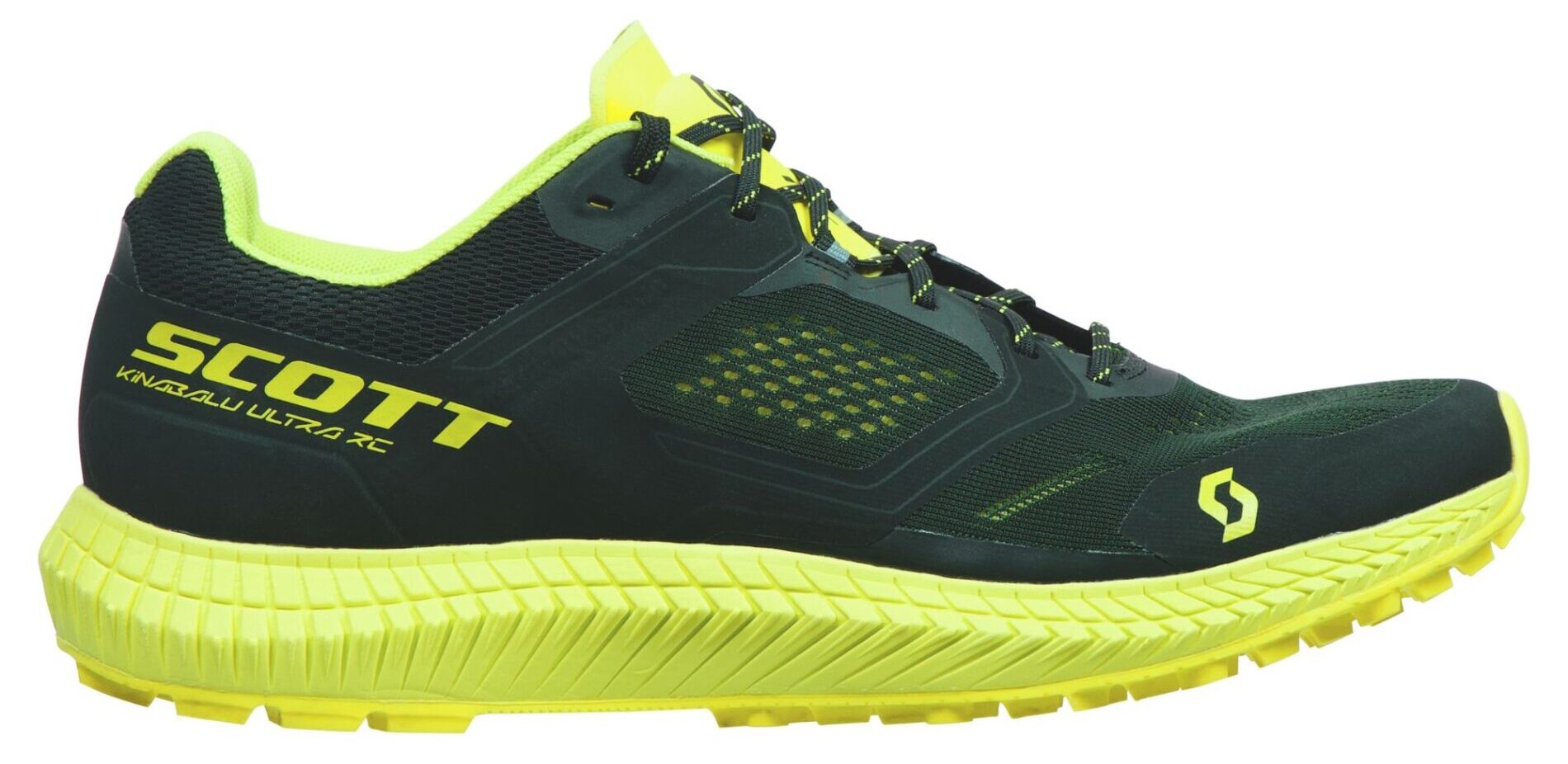
Stack Height
- Heel: 29 mm
- Toe: 20 mm
Drop: 8 mm
Stated Weight
- Men's: 270 g
- Women's: 230 g
MSRP: $160.00
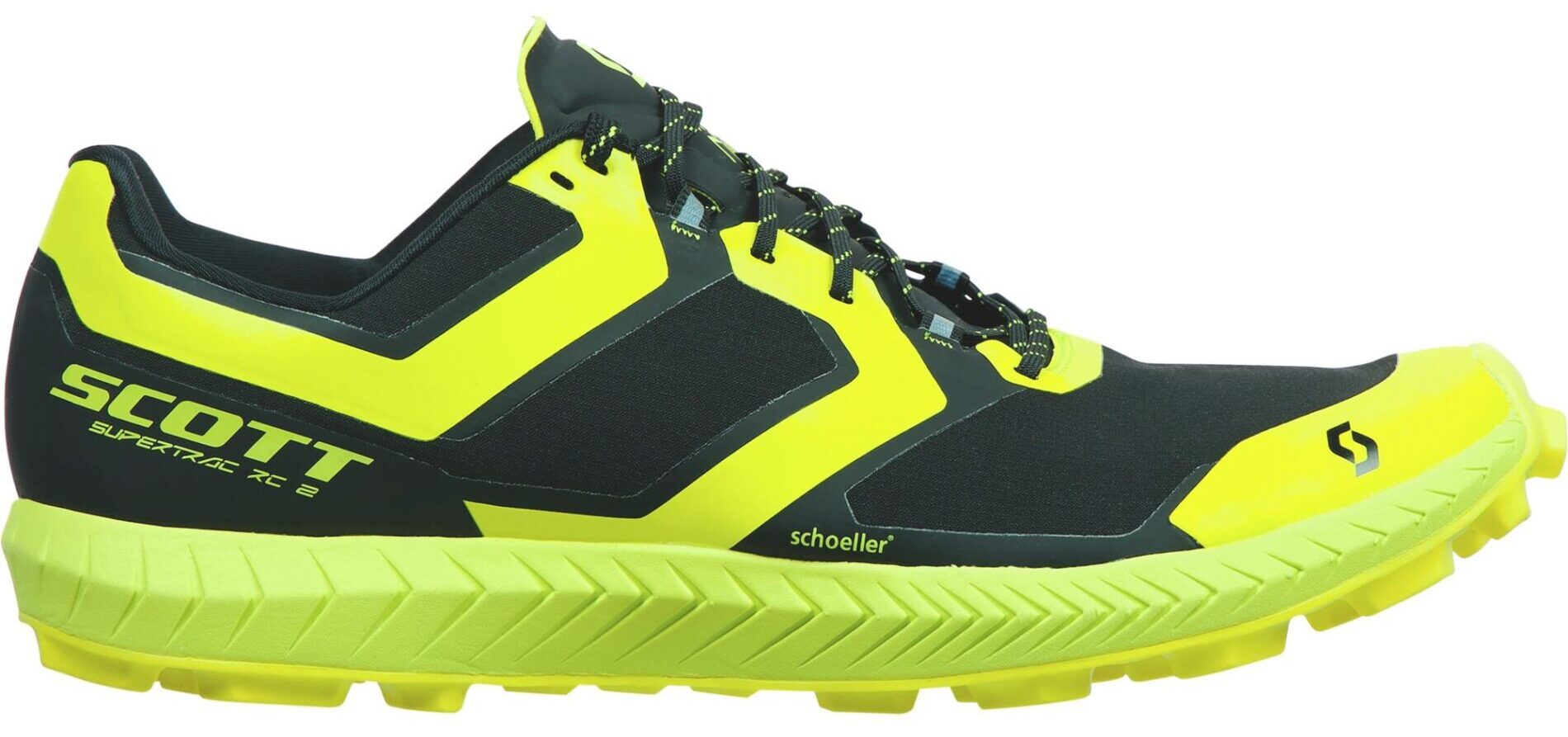
Stack Height
- Heel: 22.5 mm
- Toe: 17.5 mm
Drop: 5 mm
Stated Weight
- Men's: 270 g
- Women's: 230 g
MSRP: $160.00
Least Cushion
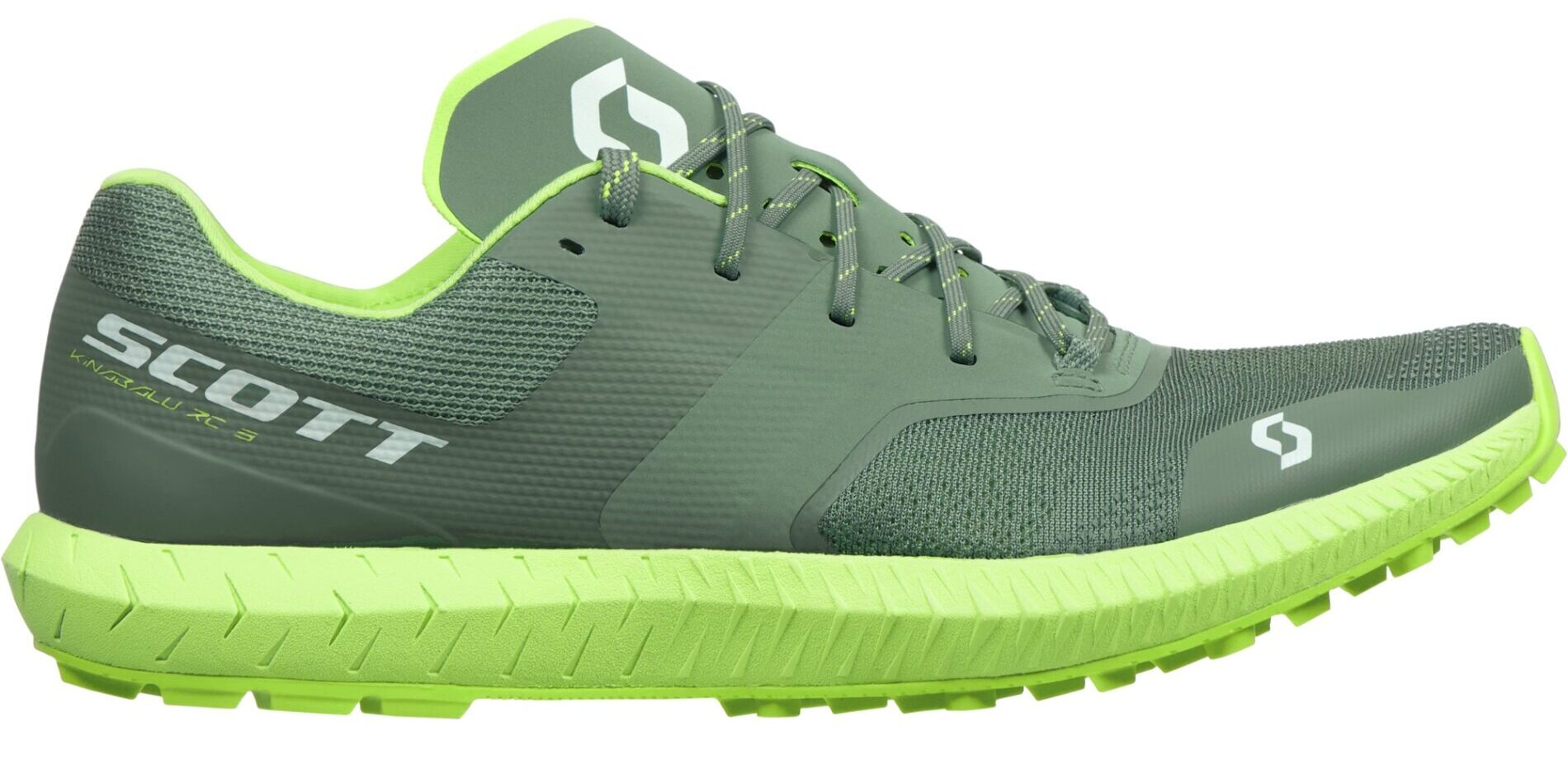
Stack Height
- Heel: 21.5 mm
- Toe: 18.5 mm
Drop: 3 mm
Stated Weight
- Men's: 230 g
- Women's: 205 g
